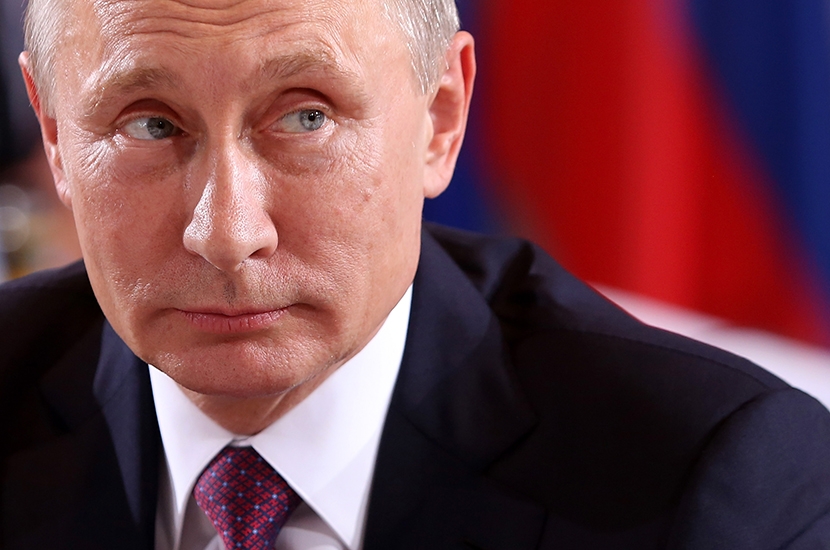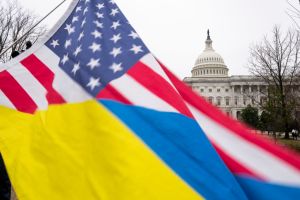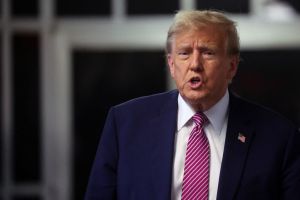Vladimir Putin knows that a poor state is a weak state. As a middling KGB apparatchik in Dresden in 1989 he saw the USSR’s authority over its empire collapse along with its economy. Two years later, the Soviet state itself imploded, unable to feed its citizens or command the loyalty of its own security forces. Rebuilding Russia’s security apparatus back to Soviet levels and securing it against another systemic collapse has been the touchstone of Putin’s two decades in power.
With the coronavirus crisis, the Putin system faces a stress test every bit as radical as that which brought down Mikhail Gorbachev. The proximate cause of the USSR’s collapse was a 1985 decision by the Saudis — with American encouragement — to crash the price of oil. Without a steady supply of oil profit to keep the state running, the true dysfunction and rottenness of the Soviet economy was revealed. Yegor Gaidar, architect of Russia’s first post-communist economic reforms, compared the Soviet economy to a bucket full of holes. As long as sufficient water pours into it, nobody notices the holes. Reduce the flow, and the leaks become more apparent, until the bucket drains to the bottom. That is the point that the people rise.
Modern Russia’s economic bucket is also full of holes — albeit different ones from those caused by the gross inefficiencies of the Soviet command economy. Putin’s Russia is characterized by wholesale theft at every level of the state bureaucracy — estimated by the independent Indem Foundation in Moscow at a full third of GDP. State employees, from regional governors to firemen, have become a vast parasitic class that preys on the incomes of private businesses. And despite lip-service to diversifying the economy, oil and gas still account for more than half of Russian exports.
To date, neither corruption nor abuse of power have been able to dent Putin’s popularity seriously. The Kremlin has been able to ride out previous oil price falls in 2008 and again in 2014 by prudently saving windfall oil money in a sovereign reserve fund. When the ruble lost half its value in the aftermath of Putin’s annexation of Crimea in 2014, the government banned the import of foodstuffs from the EU — boosting the local economy and ensuring that citizens’ devalued rubles would hold their local purchasing power.
But with the coronavirus, the regime faces a double whammy. Not only have oil prices fallen to levels not seen since the early Yeltsin years, but Russia’s harsh corona lockdown is also set to devastate the small- and medium-size businesses which make up an estimated 42 percent of the economy. And while the UK, US and other western nations can finance their post-corona financial stimulus packages by either printing money or borrowing it, Putin has no such recourse. The economic sanctions that followed Crimea have cut Russian private companies off from international money markets almost entirely — while Russian sovereign debt is only attractive when underpinned by healthy oil revenues.
Putin’s response to the crisis has been telling. He’s ordered an oppressive raft of lockdown measures, ostentatiously sent planeloads of medical aid to Italy and the US — and then disappeared from the political scene. Residents of major Russian cities must now receive a QR code from a government website or mobile app for permission to leave their houses for any purpose, including shopping. Lawbreakers are arrested — including, notoriously, an old lady who did not own a mobile phone, whose violent arrest went viral on social media. Even dog-walking is restricted to a hundred yards from home. The lockdown itself may be no more strict than Italy’s — but the police response has been far more aggressive.
Much more sinister is a Chinese-style crackdown on critics of the state’s corona response. One prominent whistle-blower is Anastasia Vasilieva, the head of Russia’s Alliance of Doctors, who has claimed that Russia’s cases — 747 dead as of April 25 — are being deliberately under-reported. ‘The situation is being covered up,’ Vasilieva wrote in her popular blog. She points to a mysterious spike in cases of pneumonia, which in Moscow has surged 37 percent this year — an increase which Vasilieva believes is actually misreported coronavirus. ‘Hospital beds are full of patients with pneumonia who aren’t being tested for the virus.’ Last month police beat up Vasilieva and accused her of violating lockdown rules as she and a team of volunteers delivered protective gear to a hospital outside of Moscow.
The Alliance of Doctors, an independent NGO, has been inundated with requests for help from desperate hospital staff, complaining bitterly about having no protective equipment or medical supplies to help them treat Covid-19 patients. Yet in March, Russia sent several military aircraft loaded with personal protective equipment and 122 military doctors to Bergamo, Italy — landing at Rome, rather than a closer airport, in order to extract maximum PR value from the spectacle of Putin coming to the aid of stricken Europeans. According to Russia’s Foreign Minister Sergei Lavrov, the aid had been requested by Italian Prime Minister Giuseppe Conte after his pleas for help from other EU states had been rebuffed.
Meanwhile, the usually omnipresent Putin has been curiously absent from the nation’s TV screens. Instead Moscow’s mayor Sergei Sobyanin and Prime Minister Mikhail Mishustin — an almost unknown tax minister who was appointed in January — have taken the lead, and the flak, in enforcing the lockdown. Putin has appeared four times to address the nation from his dacha outside Moscow — but has deliberately held back from his usual hands-on role. That may be smart politics. If his lieutenants succeed, he can step in to take the credit — or if they fail, step in to noisily fire them.
There are already signs of discontent. On April 20 in the North Caucasian city of Vladikavkaz, a protest by 2,000 people over job losses was violently broken up by riot police. A petition from owners of small and medium-sized businesses appealing to the government for help with mass bankruptcies has gained more than 300,000 signatures. Economists now predict the worst recession since the collapse of the USSR, with a rise in the unemployment rate to 15 percent that could leave as many as eight million jobless.
In some ways, Putin is better placed to ride out the storm than Gorbachev was. The state’s rainy-day reserve fund stands at $570 billion, up $190 billion since 2014. That should go some way to covering coronavirus bailout measures announced by Central Bank chairman Elvira Nabiullina — starting with an initial $81 million package of loans to private business. And in the long term, low oil prices are set to drive US shale oil companies out of business, which will ultimately be good news for Russian producers.
But Russia’s 2019-20 budget balances at an oil price of $45 a barrel. With current prices at $21, the Kremlin faces a serious financial shortfall — without even accounting for the massive costs of propping up Russia’s coronavirus-stalled economy, which Putin’s former finance minister Alexei Kudrin estimates will take a stimulus spend of some seven percent of GDP..
The unspoken grand bargain between Putin and the Russian people that has underpinned his success was that he would deliver prosperity and national greatness in exchange for their surrendering democratic freedoms and turning a blind eye to the corruption of the Kremlin’s cronies. Whether that bargain can survive a collapse in oil income and a massive rise in unemployment will be Putin’s greatest test yet.
This article was originally published in
The Spectator’s UK magazine. Subscribe to the US edition here.


















